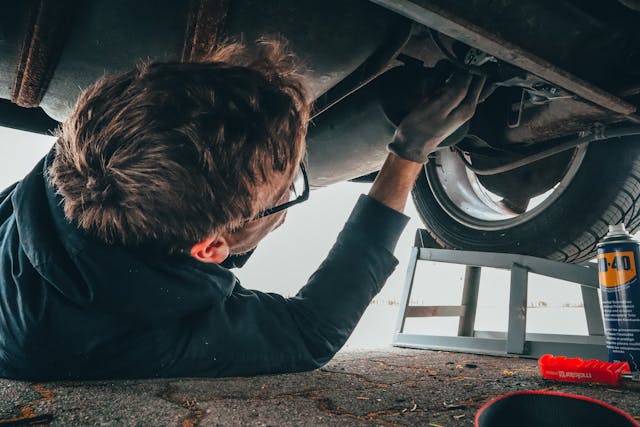Waste Management Tips for Car Garages
Effective waste management is crucial for car garages due to the variety of waste materials they generate, including hazardous substances. Proper waste management not only ensures regulatory compliance but also enhances environmental sustainability and operational efficiency. Here are some essential waste management tips for car garages from Binn Group, a waste management company in Scotland.
1. Conduct a Waste Audit
Identify Waste Types:
Start by conducting a comprehensive waste audit to understand the types of waste your garage produces. Common waste includes used oil, tires, batteries, scrap metal, and general office waste.
Measure Waste Volume:
Quantify the amount of each type of waste generated over a specific period. This data will help you identify key areas for improvement and track your progress in waste reduction efforts.
2. Proper Hazardous Waste Management
Segregate Hazardous Waste:
Clearly label and segregate hazardous waste such as used oil, batteries, solvents, and antifreeze from non-hazardous waste. This prevents contamination and ensures safe handling.
Use Approved Containers:
Store hazardous waste in approved containers that are leak-proof and clearly labeled. Ensure containers are kept closed when not in use to prevent spills and evaporation of volatile substances.
Partner with Certified Disposal Services:
Work with certified waste disposal services to ensure hazardous waste is disposed of in compliance with local regulations. These services can safely handle and dispose of hazardous materials, reducing your liability.
3. Implement Recycling Programs
Recycle Automotive Parts:
Establish a recycling program for automotive parts such as tires, metal scraps, and batteries. Many of these materials can be recycled, reducing the environmental impact and potentially earning your garage some extra income.
Collect and Recycle Fluids:
Set up collection systems for used oil, coolant, and other automotive fluids. Many recycling facilities accept these fluids, which can be reprocessed and reused, minimizing waste and environmental harm.
Recycle Office Waste:
Implement recycling for paper, cardboard, and plastics generated in your office. Provide clearly labeled recycling bins to encourage staff participation.
4. Reduce Waste Generation
Inventory Management:
Optimize your inventory management to reduce over-ordering and minimize waste. Keep track of supplies and materials to ensure you order only what you need.
Reuse and Repurpose:
Find ways to reuse and repurpose materials. For example, use old tires for various DIY projects or repurpose scrap metal for repairs or other uses.
Employee Training:
Train your employees on best practices for waste reduction. Encourage mindful use of materials and proper disposal techniques to minimize waste generation.
5. Adopt Sustainable Practices
Use Eco-Friendly Products:
Switch to eco-friendly products such as biodegradable cleaners and non-toxic solvents. These products reduce harmful environmental impacts and improve workplace safety.
Energy Efficiency:
Implement energy-efficient practices such as using LED lighting, energy-efficient HVAC systems, and encouraging energy-saving habits among employees. This reduces your overall environmental footprint and can lead to cost savings.
Water Conservation:
Adopt water conservation measures such as using water-efficient equipment and recycling water used in vehicle washing processes. This reduces water waste and lowers utility costs.
6. Stay Compliant with Regulations
Understand Local Regulations:
Stay informed about local, state, and federal waste management regulations that apply to your business. Compliance ensures you avoid fines and legal issues.
Regular Inspections:
Conduct regular inspections to ensure your waste management practices comply with regulatory standards. Address any issues promptly to maintain compliance and improve efficiency.
7. Engage with Waste Management Services
Partner with Experts:
Engage with waste management experts who can provide guidance and services tailored to your garage’s needs. They can help optimize your waste management processes and ensure compliance with regulations.
Continuous Improvement:
Regularly review and assess your waste management practices. Seek feedback from employees and waste management partners to identify areas for improvement and implement changes accordingly.
Conclusion
Effective waste management is essential for car garages to ensure regulatory compliance, environmental sustainability, and operational efficiency. By conducting waste audits, managing hazardous waste properly, implementing recycling programs, reducing waste generation, adopting sustainable practices, staying compliant with regulations, and engaging with waste management services, your garage can significantly improve its waste management processes. These practices not only benefit the environment but also enhance your garage’s reputation and profitability. Start integrating these tips into your operations today to build a more sustainable and successful business.






